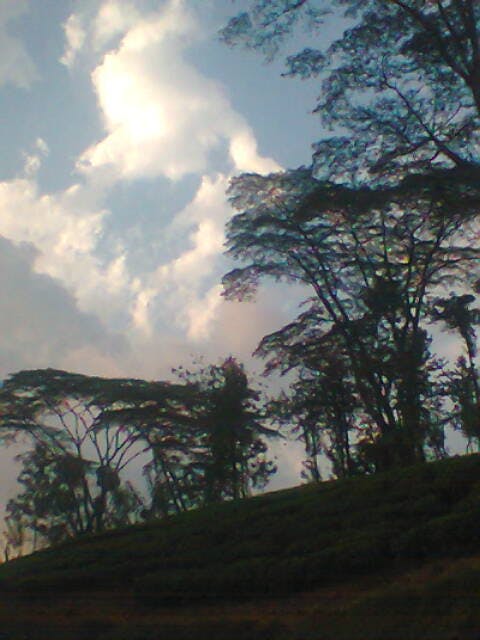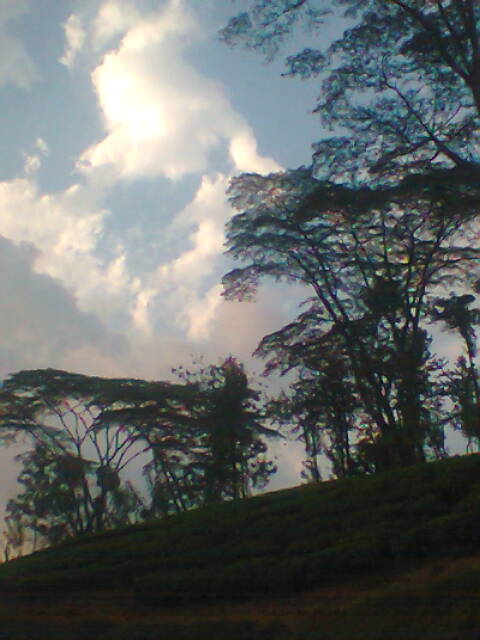Wessa ...
May 1, 2019
Story


Wessa …….
This is the local term we use for ‘rain’
‘Rain’ is not rare in our country. We get enough of rain for the entire country.
We people never like to say ….. ‘Rain rain go away come again another day’ we welcome ‘wessa’ in any moment and anytime of the day, any season.
Rainy season is for ‘paddy cultivation’ and for all other cultivation as well. ‘Paddy’ is the pulse of our country. The heart beat of country economy and the breath of our farmer. Still holds a better place never changing place in all the hearts of people that respect ‘the hearth’. The hearth is known as the heart of the Sri Lankan house. The rain brings grain and fills the hearts and of course the ‘Vee Bissa’ of the house of the farmer (‘Vee Bissa’ is a local term and it is the place where the farmers keep and store their harvest for the purpose of future) if there is no ‘wessa’ then the ‘Vee Bissa’ gets no grain. They are friends. Both knows the real meaning of ‘saving’ and how important this term ‘saving’ is. ‘Vee Bissa’ is also a sign of proper saving abilities of a household or of the ‘commander - in chief of the department of home economy the mother. She handles them with so much love and care. This division of labour of the house is divined and has many things to do with love and that is a kind agreement that was/is made between husband and wife of the Sri Lankan society .I know things have changed a little but this kind of an agreement of a family still valid thanks to everyone who respects these natural agreement that involved no written words/agreements.
And I know we send our pulse of farmers ‘rice’ to the ‘pulses’ of other countries across the globe.
We have a way of saving ‘rain water’. ‘WEVA’ is the best place to store rain water. That is not a natural tank but most of those were built by ‘the rain lovers’, the kings, the people of our country with no complains, with no hesitations, but gathering with ‘love’ and with dignity. ‘Weva’ is the choice of the rain lovers. So the rain lovers knew the importance of saving water without letting others to waste even a drop of water. The kings and the queen of our country honoured these friends of rain, the agricultural farmers by allocating a piece of land as a gift from the king of the country not only to respect them but also honoring the role of the ‘rice winners’ of our country. ‘Weva’ is an art of ‘water saving’ one of the best water saving methods of our country. We have quite a good number of ‘water banks’ globally known as ‘The weva’(Tank). Saving can be identified also as ‘getting maximum use of something’ not only the money but also the gifts of nature ‘the natural resources’. So wessa is a gift from this nature one should get maximum use of it or for the benefit of a country, a nation.
Major irrigation schemes of Sri Lanka, as evident from the earliest written records in the Mahawansa, date back to the fourth century BC (Parker, 1881[1]; Brohier, 1934). The purpose and determination in the construction of the irrigation systems are depicted by the words of Parakrama Bahu the Great, 1153–1186 AD: "Let not even a drop of rain water go to the sea without benefiting man".
The Sri Lankan Chronicle, the Culavamsa which was written in the Buddhist canonical language Pali, enumerates his works both as a provincial ruler in western Sri Lanka and later as the monarch of the whole country: he either built or restored 163 major tanks (reservoirs), 2,617 minor tanks, 3,910 irrigation channels, 328 stone sluices and 168 sluice blocks, besides repairing 1,969 breaches in embankments. Among the reservoirs he built was the tank at Polonnaruwa, called on account of its size the Parakrama Samudra (translation: Sea of Parakrama). With an area of 30 km² and an enclosing embankment 14 kilometres long, it irrigated nearly 100 km².
The final achievements were highlighted by Sir Henry Ward, Governor of Ceylon]: It is possible, that in no other part of the world are there to be found within the same space, the remains of so many works of irrigation, which are, at the same time, of such great antiquity, and of such vast magnitude as Ceylon. Probably no other country can exhibit works so numerous, and at the same time so ancient and extensive, within the same limited area, as this Island.**
‘Farmer’ is a honourary title given for any who loves rain and knows better to deals with rain.
‘Time’ changes many things. Sometimes it is for better and sometimes for the opposite. The roles of men and women have changed over years locally and world wide.Time adds things to our lives delete some or many things from our lives. There are things that do not applicable to this theory of nature.
Yes many things have changed locally and globally …..
but ...
We still get enough of rain.
The forests that understand better the value of coolness always have the best dealings with ‘rain’’ Sinharaja’ is one of the lovable, unexplainable, one of the best gifts to our mother land. Sinharaja is a rain forest, one of the world heritages.
We are familiar with seasons but these are not known as ‘autumn’ winter or summer’ they are ‘Maha’ and ‘Yala.’maha is the rainy season we get more water in Maha compared to ‘Yala’season. In Yala we have the ‘luck’ have the liberty to use the saved water of the weva.
‘Rain water harvesting’ is something very popular in some parts of our country. That is another technique of saving rain water.
Rainwater harvesting is the accumulating and storing of rainwater for reuse before it reaches the aquifer**
It is always useful to use a useful technique to save water. Rain water.
‘Wessa’ is a close friend of our ‘children’, the poets, the novelists, lyrists, the environmentalists, the sufferers of all ‘psycho – social disorders’. The healing sounds of rain can be used as a healing method of most of the disorders. It is now wisely and widely used across world by all the therapists. ‘Psychological disorders, the outcomes or the results of the modern, busy, uncountable world of choices, can be cured to a certain extent.
When ever we missed rain we the Buddhists’ have a way of asking for rain from the ‘wessa walahaka deviyo’(the god that give us rain)we chant ‘pirith’we know the power of words, the power of well written well tested words, well used words…. ‘Pirith’
Pirith is the Sinhala word for paritta (in Pali), which means protection. "It protects one from all directions", is the traditional definition**
‘Chanting pirith is always for a good will and that can not be used to harm anyone or for an ill- will.
‘Flooding’ the angry face of the rain hurts the hearts of all sometimes.’ Flooding’ is a very visible result of deforestation. The roots of the trees protect the strength of our soil. It protects the wetness of our soil and it protects the surface of the soil to the maximum from most of the possible natural disasters. The bond that these two are maintaining (tress and wessa) is something known for centuries of life.
‘Rain water’ involves no ‘buying and selling procedures’. We pay no money for rain water. No rain water ‘trading’ here or else where in this world? I believe. Rain and rain water precious and should use only for a good will….. This rain the gift of Mother Nature has no party preferences, no class or caste preferences and no gender preferences or biases luckily.
I love to watch rain and I do not get fed up of watching rain… I enjoy viewing and looking at rain sitting in a corner of my windowsill.
** Information courtesy internet
the photograph is taken by me ... date taken March 21, 2012 .... ( Between Pathana - Nuwara Eliya/ Sri Lanka)




